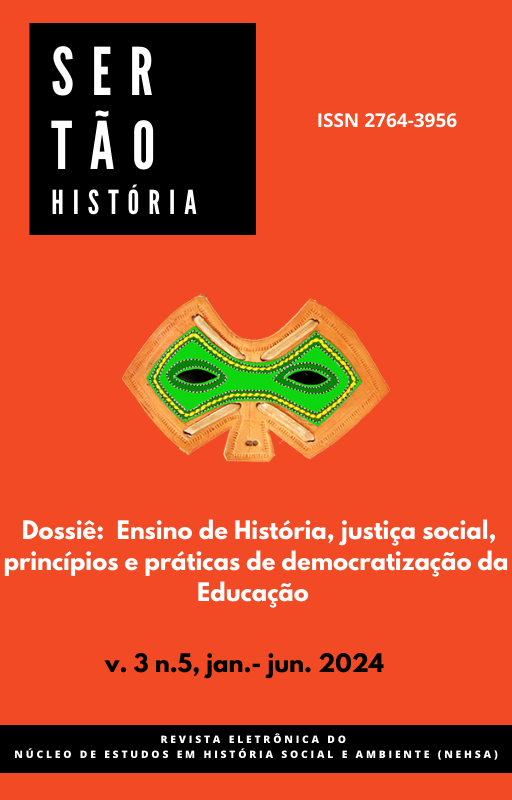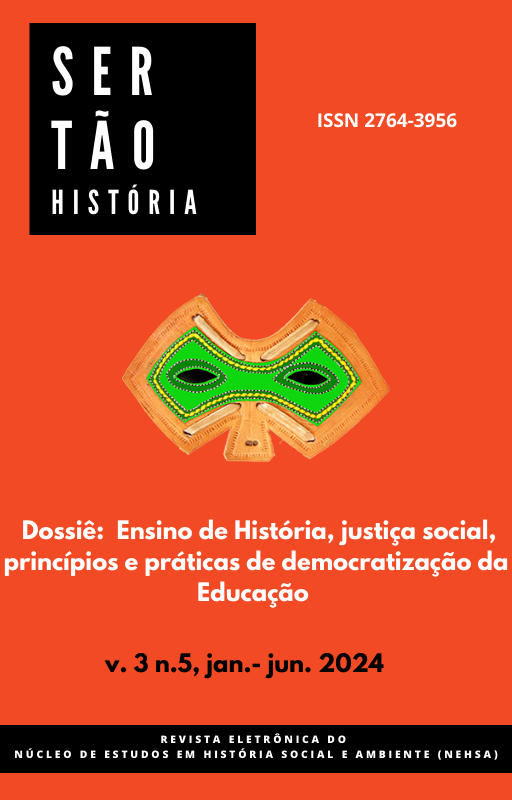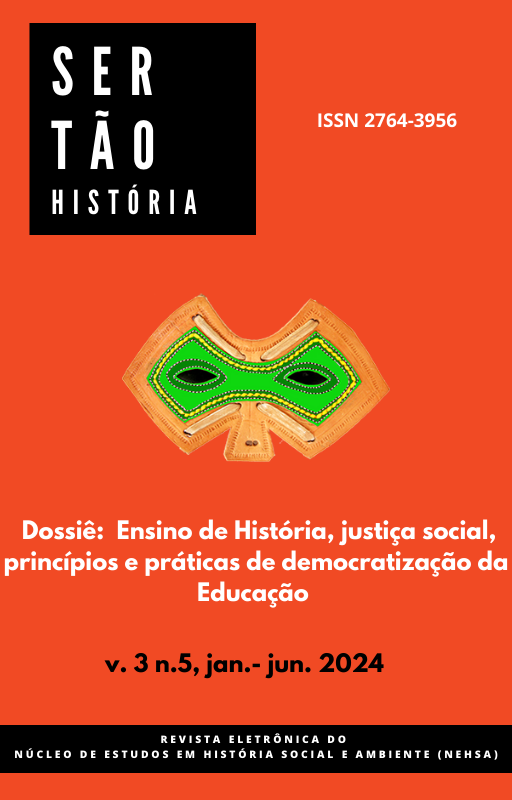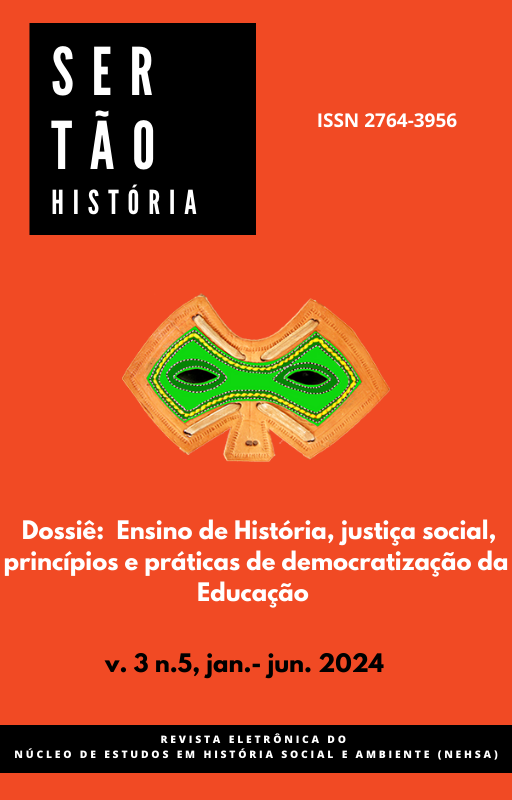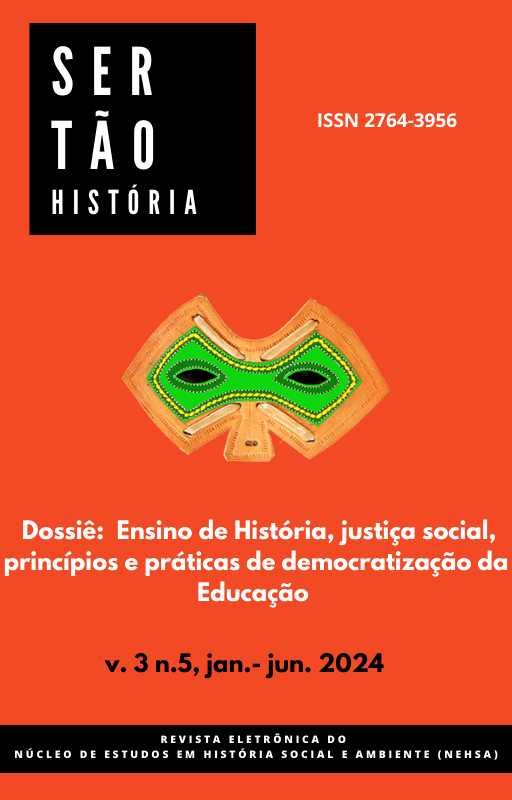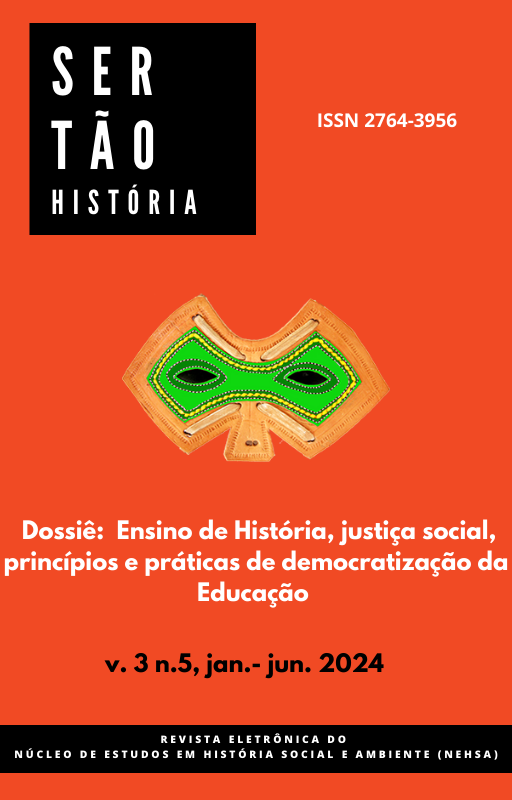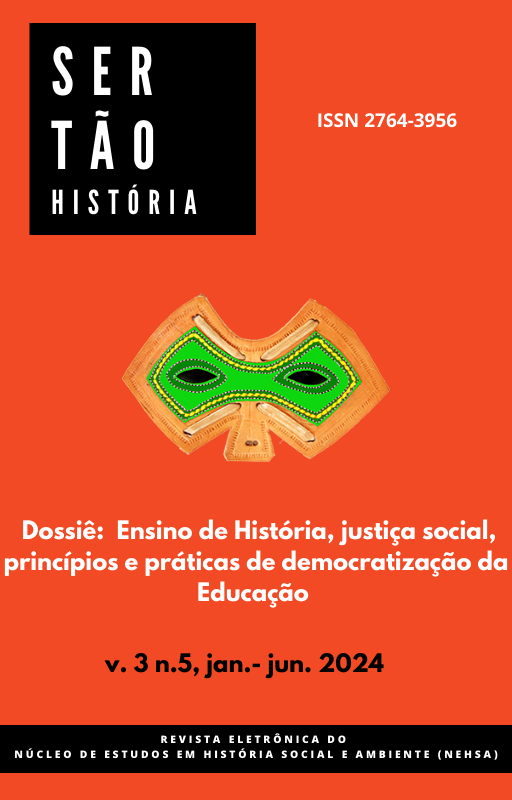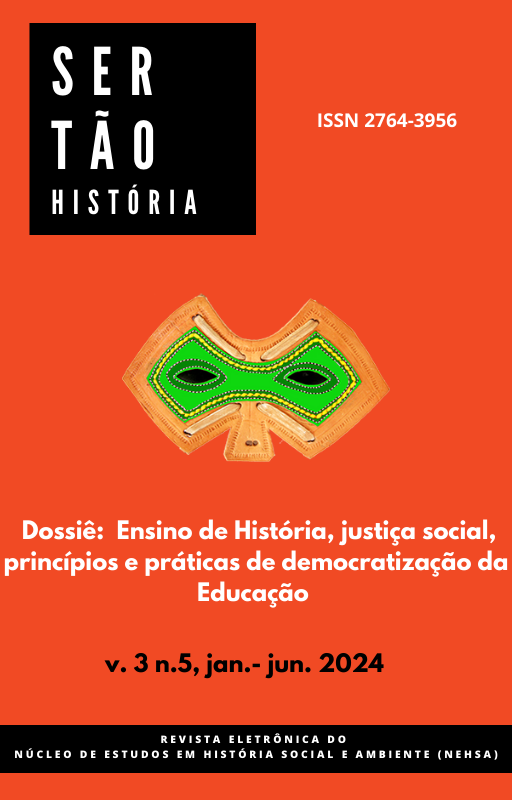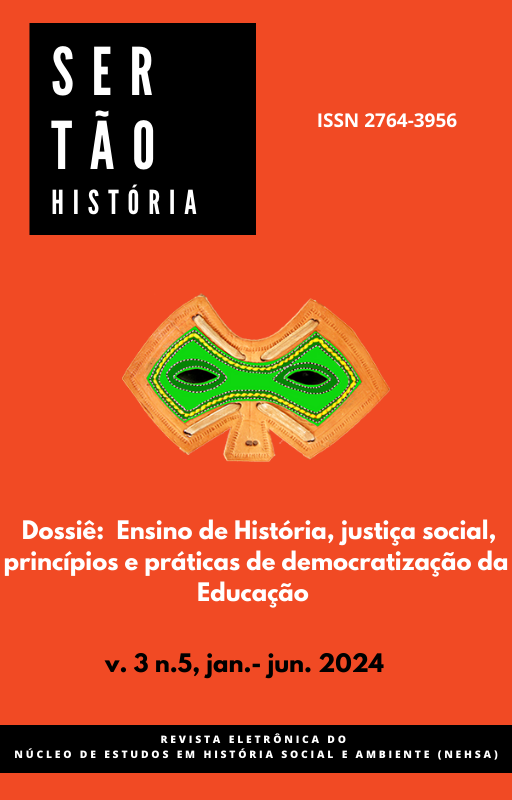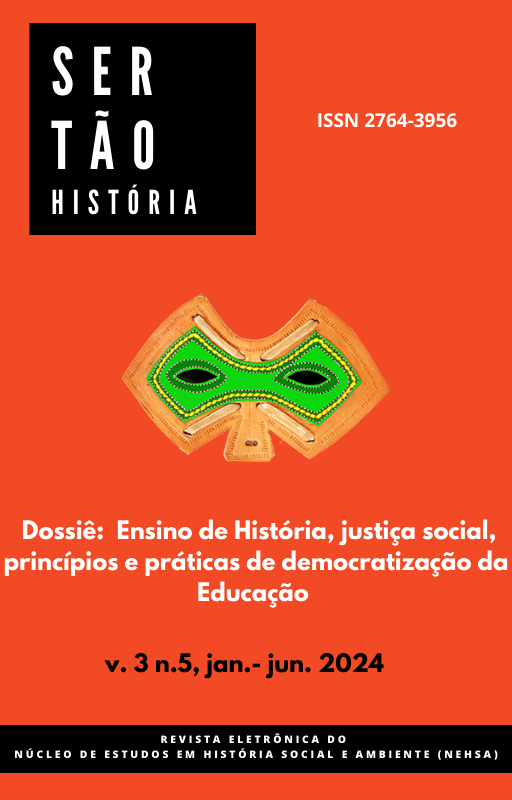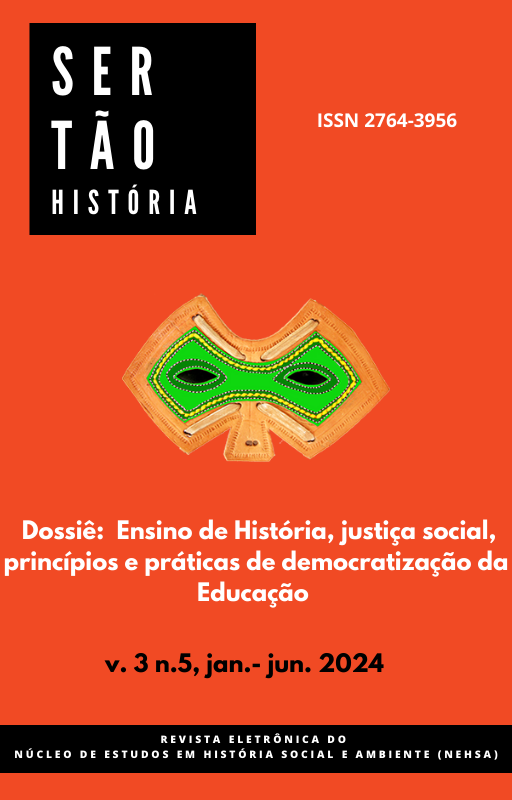Vol. 3 No. 5 (2024): History teaching, social justice, principles and practices for the democratization of education
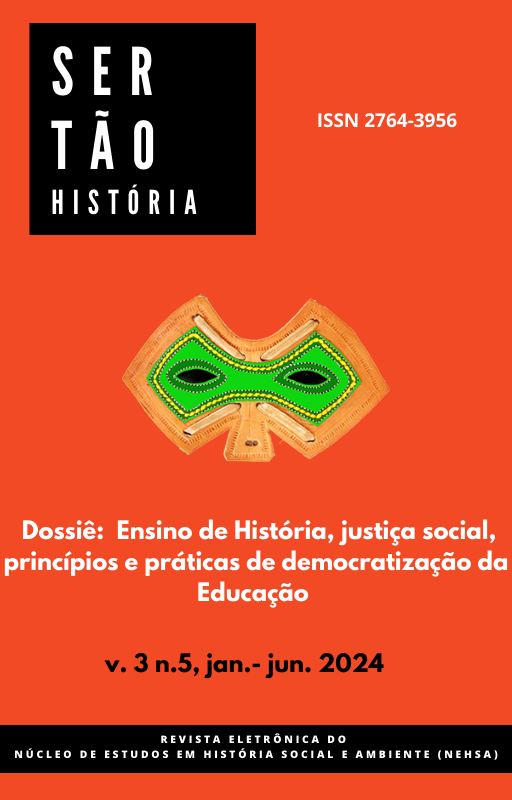
The 21st century has been marked by a permanent process of accelerating time, by the political advance of the right, marked by anti-democratic and denialist practices that attack the production, teaching and various forms of dissemination of history. For some researchers, an attempt is being made to historicize history, especially with the curricular reforms that are significantly modifying Brazilian education in order to pave the way for neoliberal reason and morality as a form of human existence. These changes directly affect the training of teachers and the teaching of history, the most obvious being the reform of secondary education, which instituted the so-called New Secondary Education. From this perspective, teaching, learning and the formation of a historical culture in Brazilian society have become a field of dispute between a conservative/neoliberal education and a democratic, anti-racist, decolonial education that combats ethnic, racial and gender prejudices. At the same time, social movements, students and history teachers at the most diverse levels of education are fighting for more effective action to implement 10.639/2003 and 11.645/2008.
In this sense, there are various forms of resistance in the field of History teaching, such as ProfHistória and its various projects to combat those who want to destroy History as a field of knowledge. By taking the teaching experience in basic education as a starting point for building reflective knowledge, ProfHistória not only contributes to democratizing access to postgraduate courses, but also consolidates itself as a place for producing a historiography in tune with the demands of the present time.
It is in this context that we proposed the dossier History Teaching, social justice and democratic educational practices. We received contributions that discussed issues that directly affect the condition of teachers as authors in defense of democratic teaching practices threatened by conservatism and neoliberalism. We hope that the dossier will be a space for disseminating research that addresses concepts and sources related to feminism, Lgbtqianp+ communities and cultures and their intersectionalities at the interface with history teaching and the most diverse forms of struggle and combating neo-fascism. Likewise, research, reflections and experience reports on the use of communication and information technologies, including Artificial Intelligence, for teaching History, History theory, teaching and teaching practices and curriculum reforms, notably the BNCC, the BNC-formação and the New High School.
Dossier organizers:
Francisco Egberto Melo - Professor in the History Department and the ProfHIstória Postgraduate Program at the Universidade Regional do Cariri (URCA).
Paula Cristiane de Lyra Lessa - Professor in the History Department and ProfHIstória Graduate Program at the Universidade Regional do Cariri (URCA).
Rosilene Alves de Melo - Professor in the History Department at the Federal University of Campina Grande and in the ProfHIstória Graduate Program at the Regional University of Cariri (URCA).
Bibliographical references
CERRI, Luís Fernando. Ensino de História e consciência histórica. Rio de Janeiro: FGC, 2011.
FOUCAULT, Michel. O Jogo de Michel Foucault. IN: FOUCAULT, Michel. Ditos e Escritos, v. IX. Genealogia da Ética, Subjetividade e Sexualidade. Rio de Janeiro: Forense Universitárias. 2014, p. 44-76. Org. Manuel de Barros da Motta.
DARDOT, Pierre; LAVAL, Christian. A nova razão do mundo: ensaio sobre a sociedade neoliberal. São Paulo: Boitempo, 2016.
LAVAL, Christian. A escola não é uma empresa: o neo-liberalismo no ensino público. Londrina: Editora Planta, 2004.
SILVA, Barbara Bueno de; BARBOSA, Carlos Soares. Empreendedorismo e o novo ensino médio: a atuação da ong junior achievement na rede estadual de educação do Rio de Janeiro. Tear: Revista de Educação Ciência e Tecnologia, v.11, n.2, 2022, p. 1-19. Disponível em: https://periodicos.ifrs.edu.br/index.php/tear/article/view/6278/3292. Acesso em: 17 mai 2022.
